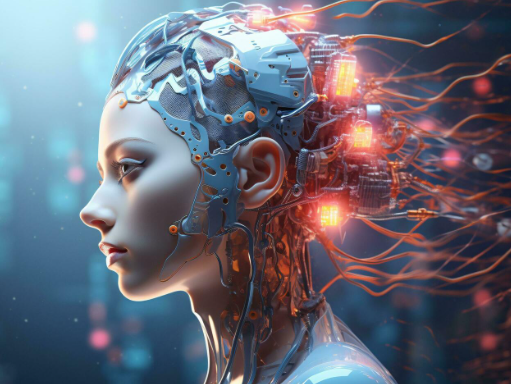Artificial Intelligence (AI) is becoming one of the more crucial scientific breakthroughs in the twenty-first century. It provides modified the way we connect to computer systems and models, and it’s changing the worldwide economy. In accordance with a written report by McKinsey, AI has the possible ways to add around $13 trillion on the global economic climate by 2030. This blog submit provides a thorough overview of AI, its record, apps, and probable effect.
Past of AI:
The concept of AI was initially introduced by John McCarthy in the 1950s, who described it as being the science and architectural of creating wise machines. The first tries at building AI techniques were actually according to rule-based systems and expert solutions. Nevertheless, these techniques were actually constrained with their capability to understand and conform to new circumstances. The development in AI was included with the development of synthetic neural networking sites within the 1980s, which mimicked the workings of your human brain and made it possible for devices to learn from details.
Uses of AI:
AI has several software across different industries, including medical care, fund, schooling, and travelling. In health-related, AI will be useful for sickness analysis, substance breakthrough, and individualized medicine. In finance, AI is now being utilized for fraud detection, portfolio optimisation, and credit risk examination. In training, AI is being utilized for individualized studying and adaptive evaluations. In transport, AI will be used for self-driving a car vehicles and targeted traffic search engine optimization.
Potential Impact of AI:
AI has the possibility to transform the global economic system by improving productivity, creating new businesses and tasks, and enhancing the quality of lifestyle. However, it also poses substantial challenges, such as task displacement, level of privacy problems, and ethical troubles. The opportunity effect of AI is determined by how it’s governed and governed. It’s important to ensure AI is created and deployed within a liable and ethical method, with proper assessments and amounts in position.
Way forward for AI:
The future of AI is thrilling and volatile. Researchers work on developing more advanced AI systems that are designed for individual-like thinking and selection-producing. The growth of quantum computers can also be expected to reinvent AI by empowering faster and more efficient handling of data. The way forward for AI is likewise molded by the regulatory and ethical frameworks that happen to be put in place to ensure AI can be used for the advantages of culture.
Bottom line:
Artificial Intelligence (umela inteligence) is certainly one of the more interesting and transformative technologies of the time. It provides the possible to transform almost every facet of our way of life, from the way you try to the way you are living. Even so, it’s important to ensure that AI is produced and deployed in the liable and moral manner, taking into account the potential dangers and obstacles. The way forward for AI is thrilling, and it’s around us to form it in a manner that positive aspects community along with the earth.
